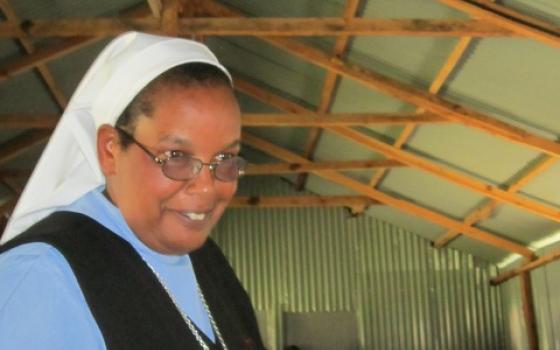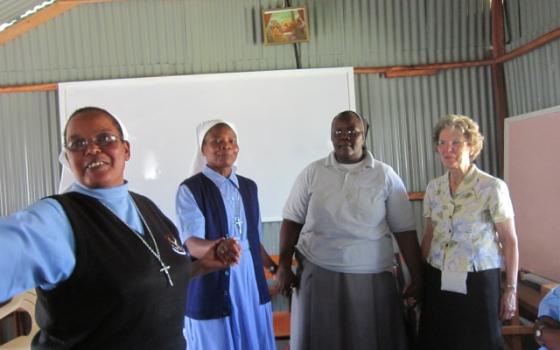Sr. Mary Wambui is director of a program for vulnerable children and women near Nairobi. Born in Kenya into a family of 11 children, she joined the Missionary Congregation of the Evangelizing Sisters of Mary after high school and graduated from Tangaza College. She celebrated her silver jubilee in 2008. Wambui previously worked in several parishes as a social worker, especially with women’s groups. The program she now works with grows directly out of her congregation’s mission. The following is adapted from extra material from Jill Day's story about sisters in Nairobi.
The work we do:
Our primary purpose is evangelization in the remotest parts of Africa and the rest of the world among vulnerable groups who are neglected socially, spiritually and economically.
We work with the most vulnerable: single mothers and children living with HIV/AIDS. Through our network we meet needy children, give early childhood education before helping them to go to our own primary school and then support their secondary school education.
Often they return to our training center for the skills they need to run a business – if they are good, we find the funds to send them to university.
First the sisters established Fatima, a nursery school:
We started in 2005, 2006 because we saw gaps in the community and wanted to help children living with HIV and AIDS and also with cases of rape.
Next we started Bishop Sisto Mazzoldi secondary school, which runs on the same principle.
We were asked why we didn’t have skills classes, so we found a building where we teach life-coping skills for three months and then subjects like hair braiding, dressmaking, tailoring or welding. We find job attachments for them, even if the pay is tiny, and we lend those who can’t be employed 2,000 shillings (U.S. $23) to start a business so they don’t remain idle.
Staff and volunteers work together to provide food, healthcare and schooling and to nourish spirituality:
Everything we get we share . . . HIV is everywhere and we cannot stand still. We connect with other groups who are working with the pandemic and work together.
We have achieved this through teamwork: We all help each other succeed. Together we have a passion for the ministry, good leadership and a nose for networking.
The impact Wambui sees:
The program has helped people to raise their self-esteem, dignity and confidence, hence improving their lives and bringing a change to the face of the community in which they live. I strongly believe that if we educate a woman we educate the whole community and the nation at large.

